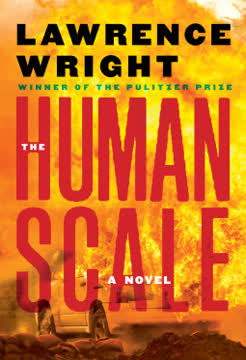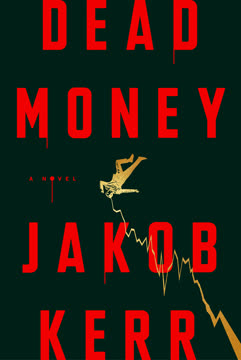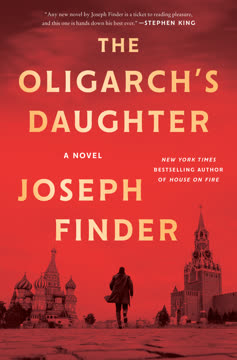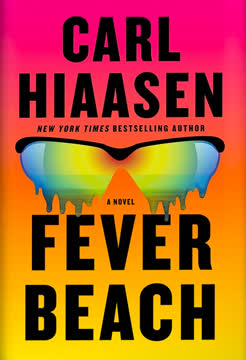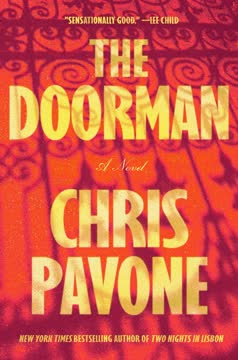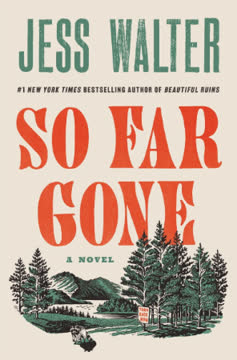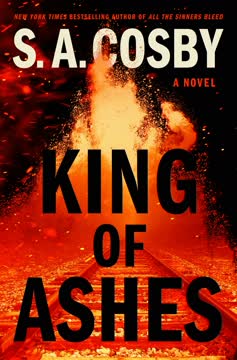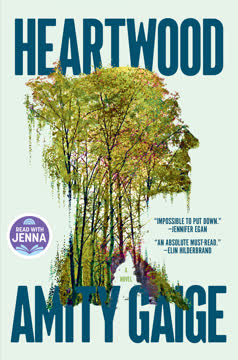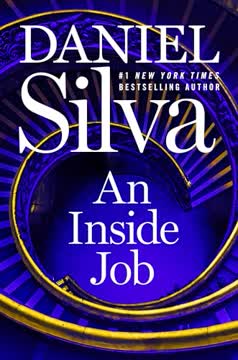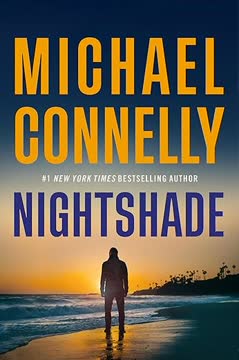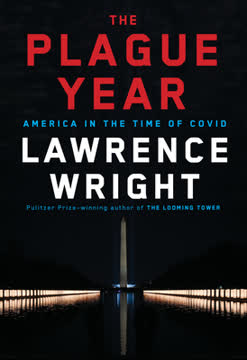Plot Summary
Bombs and Broken Lives
FBI agent Tony Malik, half-Irish, half-Palestinian, is nearly killed by a terrorist bomb in Jordan. His body and mind are shattered, and his long recovery leaves him adrift—his relationship ends, his job is at risk, and he's haunted by trauma. As he struggles to rebuild, Malik is drawn to his father's Palestinian roots, feeling the pull of a family and homeland he's never known. When his niece's wedding in Hebron offers a reason to visit, Malik's FBI boss gives him a simple assignment: check in with a local Israeli police chief. But nothing in the Holy Land is simple. Malik's journey is shadowed by loss, identity, and the scars of violence—his own and the region's.
Exile and Return
Arriving in Hebron, Malik is both a stranger and kin. He's welcomed by relatives he's never met, their warmth tinged with the pain of occupation and generational trauma. The city's ancient stones echo with history and conflict. Malik's American-ness and his Arab blood make him both insider and outsider, a bridge and a riddle. As he navigates family feasts, old grievances, and the rituals of homecoming, Malik is forced to confront the meaning of exile and the ache of return. The land is beautiful, but every olive tree and checkpoint reminds him: here, identity is never simple, and the past is never past.
Murder in Hebron
Malik's arrival coincides with the shocking murder of Israeli police chief Jacob Weingarten. The chief is found beheaded, his death staged for maximum terror. Suspicion falls on everyone—Malik included. The city erupts in fear and accusation, with Israeli and Palestinian communities each blaming the other. The murder is more than a crime; it's a spark in a powder keg, threatening to ignite old hatreds. Malik, with his investigative instincts and outsider's perspective, is reluctantly drawn into the case. The search for the killer becomes a search for truth in a place where truth is always contested, and every answer leads to more questions.
Enemies as Partners
Yossi Ben-Gal, a hardline Israeli cop, is assigned to lead the investigation. He and Malik are forced to work together, their mutual distrust barely masked by professionalism. Both are haunted men—Yossi by his violent past and the loss of his wife, Malik by trauma and the loss of his old life. As they dig into the murder, they find themselves isolated: neither side trusts them, and both are caught between loyalty and conscience. Their partnership is fraught, but necessity breeds a grudging respect. Together, they navigate a labyrinth of suspects, betrayals, and the ever-present threat of violence, discovering that in Hebron, enemies can become the only allies you have.
Sacred Land, Shattered Peace
The investigation leads Malik and Yossi through Hebron's sacred sites and tangled histories. The Cave of the Patriarchs, holy to Jews and Muslims alike, becomes a symbol of the city's divided soul. They encounter settlers driven by messianic zeal, Palestinians scarred by dispossession, and a peace process frozen by mutual suspicion. The land's holiness is both blessing and curse, its stones soaked in blood and memory. Malik is struck by the tragic symmetry: both peoples see themselves as victims, both claim the land, and both are trapped in cycles of vengeance. The search for peace is as elusive as the search for the killer.
The Chief's Last Day
As Malik and Yossi retrace Weingarten's final hours, they uncover a web of secrets. The chief was a gentle man in a brutal world, more at home with folk songs than with violence. Yet he was also a political player, navigating the treacherous currents of Hebron's settler community and the Israeli police. His files reveal suspicions of corruption, drug trafficking, and betrayal within his own ranks. Weingarten's attempts to bridge divides may have made him enemies on all sides. His murder is not just a personal tragedy but a symptom of a society where trust is rare and truth is dangerous.
The Blame Game
The murder unleashes a storm of blame. Settlers demand vengeance, Palestinians fear collective punishment, and the fragile order of Hebron teeters on collapse. Malik's family is swept up in the chaos, their celebrations turned to mourning. Yossi faces pressure from superiors and the radical Rav Cohen, whose followers see the murder as divine justification for further land grabs. The investigation is hampered by politics, prejudice, and the ever-present threat of violence. Malik and Yossi realize that in Hebron, justice is always political, and every act of violence is both cause and effect.
Family Ties, Family Wounds
Malik's investigation is entangled with his family's fate. His cousin Dina, the bride-to-be, is revealed as an informant for Weingarten, her actions driven by love for her wounded brother and a desperate hope for peace. Jamal, her fiancé, is a peace activist haunted by his brother's martyrdom and his own failures. The family is torn between hope and despair, loyalty and survival. Malik is forced to choose between his duty as an investigator and his obligations as a relative. The personal and the political are inseparable, and every choice carries a cost.
The Informer's Dilemma
Dina's role as an informant puts her in mortal danger. Both Israelis and Palestinians see her as a traitor, and her relationship with Weingarten is twisted by rumor and suspicion. Malik tries to protect her, but the forces arrayed against them are overwhelming. Dina's courage and vulnerability become a microcosm of Palestine itself: caught between powers, longing for dignity, and punished for every attempt at agency. Her fate is a reminder that in this conflict, innocence is no protection, and the line between victim and collaborator is always blurred.
The Butcher's Secret
The investigation takes a dark turn when Weingarten's severed head is found in the freezer of the butcher shop where Jamal works. The evidence is damning, and Jamal flees, becoming the prime suspect. Malik and Yossi doubt his guilt, suspecting a setup, but the machinery of accusation grinds on. The city erupts in riots and reprisals, and the wedding is canceled. Jamal's flight through the city's shadows is both literal and symbolic—a man hunted by both sides, his dreams of peace crushed by the weight of history and suspicion.
The Temple and the Trade
Malik and Yossi uncover a nexus of crime linking radical settlers, drug traffickers, and religious zealots. The Rav's plan to build a new temple is funded by laundered drug money, with young acolytes like Benny and Itai running the operation. The murder of Weingarten is revealed as a cover-up, staged to look like terrorism and distract from the real rot within the community. The lines between law and crime, faith and fanaticism, are hopelessly blurred. Malik and Yossi's pursuit of justice becomes a battle against a system that rewards violence and punishes truth.
The Peacemaker's Fall
Jamal, the would-be peacemaker, is smuggled through tunnels and deserts, only to find himself a pawn in larger games. In Gaza, he witnesses the despair and radicalization of a people under siege. His presence brings death to those who shelter him, and he is ultimately killed in a suicide bombing, his legacy twisted by those who need martyrs more than peace. Malik and Dina are left to mourn, their hopes for reconciliation buried with Jamal. The dream of peace is not just deferred—it is actively destroyed by those who profit from endless war.
October Seventh
On October 7, 2023, Hamas launches a devastating attack on Israel, breaching the border and slaughtering civilians at a music festival. Malik and Sara, Yossi's daughter, are caught in the chaos. Malik's skills and quick thinking save some lives, but not Sara's. She is killed, and Yossi is left to grieve the loss of his only child. The massacre is both a culmination and an escalation—a moment when all the old hatreds erupt into new horrors. The cycle of revenge is renewed, and the possibility of peace recedes even further.
The Price of Revenge
In the aftermath of the massacre, Israel responds with overwhelming force. The lines between justice and vengeance blur, and the innocent suffer alongside the guilty. Malik, broken by loss, helps Dina's brother Omar escape to America, but Dina herself chooses to stay, determined to fight for a better future. Yossi, disgraced and grieving, contemplates leaving Israel but cannot abandon his duty or his pain. The survivors are left to reckon with the cost of revenge—a cost measured in lives, hopes, and the possibility of forgiveness.
Stones and Oranges
As the dust settles, Malik and Yossi confront the meaning of their experiences. Malik scatters his father's ashes in Hebron, honoring a legacy of exile and longing. Yossi sits shiva for Sara, surrounded by the ghosts of his past and the ruins of his present. The land endures, its stones and oranges bearing witness to generations of struggle. The story ends not with resolution but with a prayer—for peace, for memory, for the strength to endure. In the Holy Land, the only certainty is that the past is never dead, and the future is always at stake.
The Last Goodbye
Malik prepares to leave, taking Omar with him to America, while Dina remains behind, choosing to face her fate in Palestine. Yossi, bereft and alone, contemplates a future without his daughter or his country. The bonds forged in suffering are both a comfort and a curse. The story closes with a final embrace, a coin passed from Jew to Arab, and a plea: "Pray for us." In a land where every goodbye is haunted by history, hope is a fragile, necessary act.
Characters
Tony Malik
Tony Malik is a half-Irish, half-Palestinian FBI agent whose life is upended by a terrorist bombing. His physical and psychological wounds leave him adrift, searching for identity and purpose. Malik's journey to his father's homeland is both a personal quest and a professional assignment, drawing him into the heart of the Israeli-Palestinian conflict. He is analytical, empathetic, and deeply scarred, struggling to reconcile his American pragmatism with the complexities of the Middle East. Malik's relationships—with his lost love Lucy, his newfound family, and his unlikely partner Yossi—reveal a man torn between worlds, longing for connection but marked by loss. His development is a journey from alienation to reluctant engagement, from observer to participant, and ultimately to a kind of tragic wisdom.
Yossi Ben-Gal
Yossi is an Israeli police officer, a veteran of the army and the occupation, whose life is defined by loss and duty. Gruff, stubborn, and often brutal, Yossi is also capable of deep loyalty and unexpected tenderness, especially toward his daughter Sara. His partnership with Malik forces him to confront his own prejudices and the moral ambiguities of his work. Yossi is haunted by the violence he has committed and witnessed, and by the death of his wife. His relationship with the settler community, the Rav, and his own colleagues is fraught with suspicion and betrayal. Over the course of the story, Yossi moves from rigid certainty to painful self-awareness, ultimately facing the limits of justice and the cost of survival in a land where every choice is compromised.
Dina Abdul Malik
Dina is Malik's young cousin, the bride-to-be whose wedding is shattered by violence. Intelligent, sensitive, and fiercely loyal to her family, Dina becomes an informant for the Israeli police to save her brother Omar. Her actions, driven by love and desperation, make her a target for both sides. Dina's relationship with Jamal is a fragile hope for peace, but her role as a collaborator brings shame and danger. She embodies the tragedy of Palestinian youth: longing for agency, punished for every choice, and forced to navigate a world where innocence is no protection. Dina's development is a journey from hope to disillusionment, and finally to a courageous, if uncertain, resolve to shape her own destiny.
Jamal Khalil
Jamal is Dina's fiancé, a peace activist whose life is defined by loss and resistance. Haunted by his brother's martyrdom and his own failures, Jamal seeks reconciliation in a society that rewards violence. His flight from accusation and his ultimate death in a suicide bombing are both personal tragedies and symbols of the destruction of hope. Jamal's relationship with Malik, Dina, and his cousin Zayyat reveals the complexities of Palestinian identity and the corrosive effects of endless conflict. He is both victim and agent, a man whose ideals are crushed by the realities of occupation and extremism.
Jacob Weingarten
Weingarten is the Israeli police chief in Hebron, a man of kindness and optimism ill-suited to the violence around him. His attempts to bridge divides and root out corruption make him enemies on all sides. Weingarten's murder is the catalyst for the story, and his secrets—files on drug trafficking, informants, and the settler community—drive the investigation. He is both a symbol of what might have been and a casualty of what is: a good man destroyed by a system that cannot tolerate goodness.
Sara Ben-Gal
Sara is Yossi's daughter, a student in Paris seeking escape from the violence of her homeland. Intelligent, compassionate, and politically engaged, Sara represents the possibility of a different future. Her relationship with Malik is a brief, luminous hope for love and reconciliation. Sara's death in the October 7 massacre is a devastating blow, shattering Yossi and symbolizing the destruction of innocence. She is both a victim and a witness, her life and death a testament to the costs of hatred.
Immanuel Cohen (The Rav)
The Rav is the spiritual leader of the radical settlers, a man whose vision of a new temple and a redeemed Israel justifies violence and dispossession. Charismatic and cunning, Cohen manipulates followers like Benny and Itai, blurring the lines between faith and fanaticism. His movement is funded by crime, and his influence reaches into the highest levels of government. The Rav embodies the dangers of messianic certainty and the ways in which religion can be weaponized.
Benny Eleazar
Benny is the Rav's grandson, a teenage leader of the settler youth. Ambitious, ruthless, and eager for violence, Benny orchestrates attacks on Palestinians and is implicated in the drug trade and the murder of Weingarten. His rise and fall illustrate the seduction of power and the ways in which young men are shaped by the ideologies of their elders. Benny is both a product and a perpetrator of the cycle of violence.
Ehsan Zayyat
Zayyat is a Hamas bomb maker, cousin to Jamal, and a shadowy figure orchestrating violence from the margins. Intelligent, ruthless, and ideologically driven, Zayyat is both a true believer and a pragmatist, using religion, crime, and personal ties to achieve his ends. His interactions with Malik and Jamal reveal the complexities of loyalty, betrayal, and the ways in which individuals are consumed by the larger forces of history.
Golda Radidowicz
Golda is an Israeli police officer, a former peace activist turned hardened soldier. Her journey from idealism to disillusionment mirrors the trajectory of the conflict itself. Golda's compassion for Dina and her own struggles with guilt and loss make her a deeply human figure. Her death in the final bombing is a reminder of the indiscriminate nature of violence and the ways in which even the strongest are ultimately vulnerable.
Plot Devices
Dual Protagonists and Mirrored Journeys
The novel's structure is built around the parallel journeys of Tony Malik and Yossi Ben-Gal—outsiders in their own societies, haunted by loss, and forced into reluctant partnership. Their mirrored arcs—Malik's search for belonging and Yossi's struggle with duty and grief—allow the story to explore both sides of the conflict with empathy and nuance. Their evolving relationship, from suspicion to respect to shared mourning, is the emotional core of the narrative.
Murder Mystery as Political Allegory
The investigation into Weingarten's murder serves as both a classic whodunit and a metaphor for the region's intractable problems. Clues, red herrings, and shifting suspects mirror the complexities of Israeli-Palestinian relations, where every fact is contested and every solution is provisional. The mystery's resolution—corruption and fanaticism at the heart of both communities—underscores the futility of seeking simple answers in a world built on competing narratives.
Interwoven Personal and Political
The novel blurs the line between the personal and the political: weddings become funerals, lovers become informants, and every act of kindness is shadowed by suspicion. Characters' private choices—Dina's informant work, Jamal's activism, Malik's loyalties—have public consequences, and vice versa. This device humanizes the conflict, showing how ordinary people are caught in the gears of history.
Foreshadowing and Historical Echoes
The narrative is rich with foreshadowing—dreams, omens, and historical parallels that hint at coming tragedy. The October 7 massacre is presaged by smaller acts of violence and the failure of institutions to heed warnings. The use of sacred sites, family legends, and references to biblical and modern history create a sense of inevitability, as if the characters are trapped in a story that has been told before and will be told again.
Multiple Perspectives and Moral Ambiguity
The story shifts perspectives among Israelis and Palestinians, men and women, young and old, radicals and moderates. This multiplicity of voices creates a tapestry of moral ambiguity: every character is both right and wrong, victim and perpetrator. The use of informants, double agents, and unreliable narrators deepens the sense that truth is always provisional, and justice is always compromised.
Analysis
Lawrence Wright's The Human Scale is a sweeping, deeply human exploration of the Israeli-Palestinian conflict, rendered through the lens of a murder mystery and the intertwined lives of unforgettable characters. The novel's power lies in its refusal to offer easy answers or clear heroes. Instead, it immerses the reader in the tragic complexity of a land where every stone is contested, every act of violence is both cause and effect, and every hope for peace is shadowed by betrayal. Wright's narrative structure—mirroring the journeys of Malik and Yossi, and weaving together personal and political threads—allows for a nuanced portrayal of both sides, exposing the ways in which ordinary people are shaped and shattered by history. The book's central lesson is that intractable conflicts are sustained not just by extremists, but by the everyday compromises, silences, and small betrayals of those who long for normalcy. The October 7 massacre, and the cycles of revenge that follow, are not aberrations but the logical outcome of a system built on fear, grievance, and the refusal to see the other's humanity. Yet, amid the ruins, Wright finds moments of grace: in love, in memory, in the stubborn persistence of those who refuse to give up on the possibility of a different future. The novel's ultimate message is both sobering and hopeful: peace is possible, but only if we reckon with the human scale of suffering, and the courage it takes to break the cycle of hatred.
Last updated:
Review Summary
The Human Scale received mixed reviews, with praise for its insights into the Israeli-Palestinian conflict but criticism for its pacing and balance. Many readers found it educational and thought-provoking, appreciating Wright's exploration of multiple perspectives. However, some felt it was too heavy-handed or biased. The novel's blend of murder mystery and historical context drew both praise and criticism. Overall, readers valued the book's depth but were divided on its execution and message.
Similar Books
Download PDF
Download EPUB
.epub digital book format is ideal for reading ebooks on phones, tablets, and e-readers.
